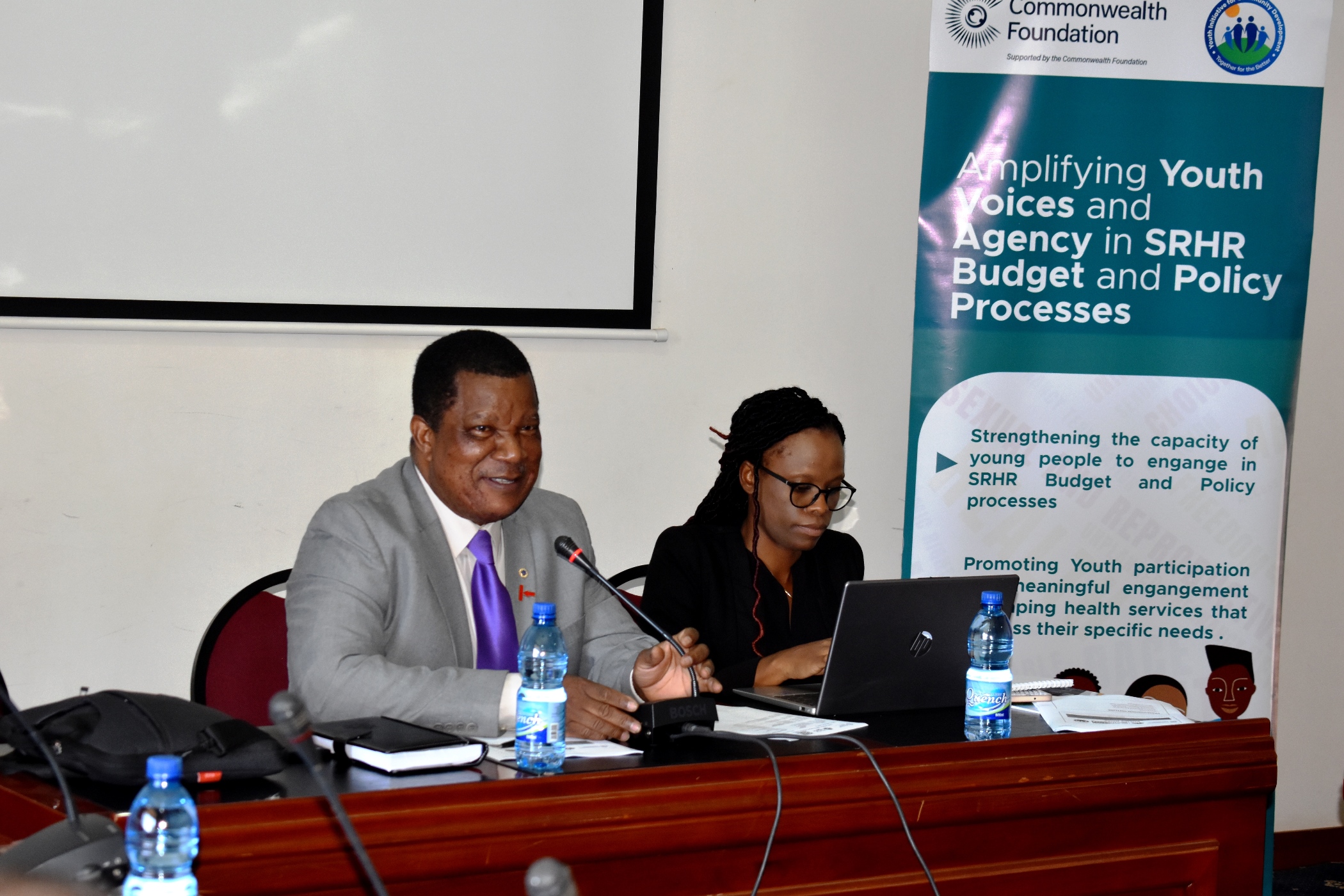Young people drawn from various youth clubs and youth-led organisations in the country meaningfully engaged with chairpersons of various committees of the National Assembly and representatives of various Ministries, Departments, and Agencies (MDAs) with the shared mission of increasing accessibility to Sexual Reproductive Health Rights (SRHR) and services.
The meeting was held at the parliament building in Malawi’s capital, Lilongwe.
The aim of the engagement, organized by the Youth Initiative for Community Development (YICOD) in collaboration with All for Youth and the Phalombe Youth Arms Organisation, with financial support from the Commonwealth Foundation, was to amplify the voices and agency of young people in the budget and policy processes related to Sexual Reproductive Health Rights (SRHR) and services.
Young people presented various issues that emerged after analysing the 2025/2026 Malawi budget, highlighting the lack of funding specifically allocated to Youth Friendly Health Services and SRHR in general. They proposed a 10 percent increase in the health budget to meet the Abuja agreement threshold.
For instance, in the proposed budget, the health sector has been allocated 741 billion Malawi Kwacha, which is just nine percent of the total budget of 8 trillion Malawi Kwacha. The young people urged parliament to consider increasing the health budget by an additional 500 billion Malawi Kwacha.
YICOD’s Executive Director, Andrew Bwanali, stated that there is a need for parliament to increase the health budget and allocate more funds to SRHR and Youth Friendly Health Services (YFHS) to protect young people from contracting sexually transmitted diseases, preventing unintended pregnancies, and addressing early marriages, among other issues.
“We came here with one voice to raise the issues affecting us as young people. We want to see an increase in the health budget so that as a country we can improve accessibility to SRHR services. There is a need for a clear budget line for the YFHS, which is critical for the provision of quality SRHR service delivery.
“We are glad that the parliamentarians, through their representatives from various committees, have noted our concerns and promised to take action. However, there is still a need for the government and all stakeholders to explore strategies and ways to finance the health sector for it to be efficient and effective,” he said.
On his part, the chairperson of the Parliamentary Committee on Health, Mathews Ngwale, emphasized that health financing is key to addressing funding challenges in the health sector, adding that other sectors are coming up with innovative ways to finance their activities. He suggested that the health sector could adopt similar strategies, including health insurance and levies on products such as cigarettes and alcohol.
Ngwale acknowledged that youth-friendly health services are not explicitly included in the budget, despite district councils already spending on such services at the local level.
“Of course, there is no clear budget line showing SRHR and YFHS, but there is spending on those areas; the estimates are simply embedded within other budget lines. I agree that we need to find ways to fund the health sector and increase its budget,” he said.

Dr Mathews Ngwale speaking to the house during the engagement
The Deputy Director of Youth in the Ministry of Youth and Sports, Kettie Mwandira, commended YICOD and its partners for organizing the event, stating that it aligns with the ministry's emphasis on meaningful participation of young people in decisions that affect their development and well-being.
Mwandira emphasized that, despite most structures not adhering to the 30 percent youth representation guideline, those given the opportunity should leverage it fully and meaningfully contribute to improving the well-being of young people.
Program Assistant at the National Youth Council of Malawi (NYCOM), Wezzie Mbendera, echoed Mwandira's sentiments regarding meaningful participation, as young people are being given space for engagement. She noted that the council was recently involved in State of Nation Address engagements, dubbed SONA for the Youth.
“We should always utilize these spaces whenever they are provided. I want to thank the organizers of this meeting and parliament for giving young people this opportunity. I urge you all to make the most of these opportunities,” she said.




